 Terry Scoggin
Terry Scoggin Chief Executive Officer
Titus Regional Medical Center (TRMC)
Mount Pleasant, Texas
Terry has a strong ability to lead with both his head and heart. When he moved into the CEO role at TRMC seven years ago, there were only a handful of aligned physicians, average clinical performance, and a less-than-optimal financial picture. The support within the community was lacking and diminishing. His empathy and compassion for the people he serves, coupled with his phenomenal capabilities to think strategically and assemble a strong Executive Team, have allowed this health system to stabilize, grow, and achieve.
The nature of my work in rural health is to ensure that rural has a “seat” at the table – telling the “story of rural” and ensuring this wonderful way of life is not forgotten. My role also includes being a catalyst with my peers in rural by driving innovation and transforming rural health care to reduce the gap in mortality between urban and rural. We should not live shorter lives based on our decision to raise our families in a rural setting!
Named one of the Top 250 Maternal Hospitals in the U.S. in 2022, TRMC delivers approximately 950 babies annually and is a Level II Designated Maternal Hospital and Level II Designated NICU. TRMC partnered with the Texas Organization of Rural & Community Hospitals and the Texas Hospital Association to add a rider in the 2023 Texas Legislature to create a state pilot for Tele-Psychiatry in Rural Emergency Departments.
One of the biggest challenges in our community is the lack of public health. Titus County is one of the twenty-six counties in our region that does not have an independent health department. Realizing the importance of public health post-COVID, TRMC took the lead by creating the Center for Healthy Living. This department is building relationships with local employers, community organizations, neighborhoods, churches, etc., to ensure community needs are met.
The “Power of Rural” is PERSONAL! You know the people you are helping, assisting, and advocating. You know their faces, their struggles, their pain, and their success. The personal touch also drives you to do better, go farther and make sure you meet the needs of your patients and family members.
My family adopted Mount Pleasant as our home, and we have been graciously accepted by this community. An opportunity became available at the hospital, and I was hired to be Chief Financial Officer. I have worked in many industries over the past thirty years, but health care (especially rural health care) is totally different. The ability to serve, give, treat, and love people when they need you most is the part of this industry that drives me every day.
The State Office of Rural Health has been instrumental to our community and health system. During COVID, they participated in providing information and resources to the independent rural health systems, which was critical.
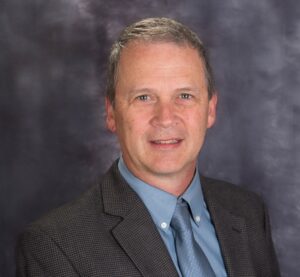 Pete Antonson
Pete Antonson CFO
Northwood Deaconess Health Center
Northwood, North Dakota
Pete Antonson’s entire career has been dedicated to improving rural health in North Dakota. He began working at Northwood Deaconess Health Center (NDHC) in 1983 and slowly moved up the ranks, serving as CFO and, eventually, CEO, a position he held for 22 years until he retired in 2022. During his tenure, Antonson made significant contributions to improving long-term care in North Dakota.
We truly understand and do what we can to always put the client first. As a non-profit, we don’t always choose the bottom line as the only decision criteria. In a small town, you are always linked to your community, which leadership within the organization has always understood to mean you are involved in the community. Whether that is serving on boards or committees or volunteering in other ways, we strive to engage and participate in our community. As the largest employer in Northwood, we make an economic impact over and above community engagement. Our staff live, work, have children in school, and turn over the dollars we receive for work in the community.
Early during the pandemic, the local public school approached us, asking if we could provide a school nurse for the calendar year. We specifically recruited someone we felt could meet the needs, as we had no nurses to spare, and the results were fantastic. I believe the Northwood Public School was the first school in rural Grand Forks County to have a school nurse, leading other schools to follow suit. Now, with the school seeing the continued need for a school nurse, they have hired their own.
Rural health is under a lot of strain and pressure. We have a situation that we believe is the best of both worlds. We are an independent organization; however, we leverage a management agreement with a tertiary organization to maximize resources and purchasing power. It has also been important to create a culture where voices are heard and opinions can be shared freely without judgment.
Many minds make for great thought and discussion. If we harness the energy, brain power, and spirit of our people, we can be far more nimble, move quickly, and be less burdened by the bureaucracy of larger organizations.
It started as my one and only job offer that blossomed into more. I found that working in my hometown could help make a difference in the health of people and families I grew up with. Small towns are a great place to raise a family. Small towns are the spirit and vibrancy of our state and country.
 Susan Trippet, ARNP-CNP
Susan Trippet, ARNP-CNP Employee Education Provider
Beaver County Hospital Authority
Beaver, Oklahoma
Beaver County Hospital Authority is a very rural setting in the Oklahoma Panhandle. We are a Critical Access Hospital and serve the county with two rural health clinics. My role is in a broad scope of education with a primary focus on providing staff with educational opportunities. We have never had the opportunity to have someone solely dedicated to education before now. One aspect of my job that has been the most exciting is helping implement quality improvement projects. Our rural health clinics have seen improvement in patient outcomes as a result of these projects, and we look forward to improved patient outcomes in other departments as we continue to develop our quality improvement teams.
After retiring from being a family nurse practitioner and leaving a practice that I loved, I never considered that I could continue to try to be a difference-maker in my community’s health. I saw things I wanted to change when I was in clinical practice but never had the time to focus on the health issues that were barriers for our patients. Now, I can work with other people in our organization and surrounding areas to help remove these barriers and provide better access to health care for our community.
One successful project is the improvement of quality care at our rural health clinics. We had always worked on quality improvement projects but felt like we were alone on an island trying to navigate our findings. After we started working with the OSU Center for Rural Health and with Lilypad using their PDSA model, we saw outcomes and made changes during our projects to improve quality.
One of the biggest challenges that our organization has encountered is the lack of physician providers. As all recruiting efforts seemed to dry up, our organization brought on additional nurse practitioners to serve our communities. The mid-level provider in the rural setting is invaluable to our organization.
The “Power of Rural” means that there is a force behind being rural. The people who are “grown” in the rural area are some of the most resilient, resourceful people who know how to tap into the strengths of each other to make something work. I would never underestimate rural when faced with a challenge.
When I thought about becoming a nurse, I went to work at our small-town hospital to see if I would like it. I fell in love with it! When everyone else in nursing school was picking a specialty to go to on graduating, I kept thinking that I wished there was a rural nurse specialty to choose from because that was what I wanted to be. I love taking care of patients that I have known my whole life. And I love meeting new people who are leery about what to expect with rural health and convincing them they are in great hands with us.
Our State Office of Rural Health is one of the best benefits that we have. The information that they give you in webinars and emails and the networking that they provide is something I would not want to do without. I look forward to continuing to work and learn from them to help better the health of our community.
 Raymond Hino
Raymond Hino Chief Executive Officer
Southern Coos Hospital & Health Center
Bandon, Oregon
For over 42 years, Ray has embodied the “Power of Rural” as an individual and in his leadership roles at rural hospitals. He entered his current role during a challenging time – amid the pandemic and hospital leadership challenges. He has taken the time to make meaningful connections in the community and has built a strong and positive culture at Southern Coos.
I am the CEO of Southern Coos Hospital & Health Center (SCHHC), a 21-bed Critical Access Hospital on the Southern Oregon coast. We make a difference in our community by providing excellent quality inpatient and outpatient services so our patients can be treated locally without traveling hours away from families and friends.
In 2021, as schools were reopening after the pandemic, a need was identified for a school nurse to provide for the health and safety of returning students. Our hospital and the Bandon School District developed a collaborative partnership to provide a school nurse program. The program just completed its second year and has been a huge success.
When I arrived at SCHHC, I was the seventh CEO hired in the last ten years. Due to constant turnover, there was no clear path to making necessary improvements and restoring public confidence in our hospital. We pledged that a new Strategic Plan would be created in my first 90 days on the job, and we accomplished that. The Plan is not a binder that sits on a shelf; It is a living, breathing tool that we visit frequently. Since implementation, we have achieved DNV accreditation for the first time. We have become a partner and trusted healthcare resource to area businesses, created new collaborations with other healthcare providers, and developed a financial sustainability strategy. In less than a year, we achieved over 70% of the goals we established in our plan, and our hospital has enhanced its reputation and standing.
Our primary care clinic has three Doctors of Osteopathic Medicine (DOs) who are highly skilled in osteopathic manipulative therapy (OMT). We receive referrals from hundreds of miles away for this specialty.
The “Power of Rural” is the people who live, work, and enjoy recreation in our rural communities. In healthcare, we have the privilege of caring for our friends, neighbors, and their families. Our patients are not numbers or strangers. Our healthcare team is not here to accumulate great wealth or to try to impress anyone. They are here because this is where they are needed.
Our State Office of Rural Health has been a tremendous ally to our hospital in our mission to take care of our patients and community. For example, they have helped us create a Quality Improvement program and have given me the opportunity to meet with elected representatives, helping elevate our needs for funding and healthcare reforms. They are an invaluable partner.
 Angel Flight East
Angel Flight East (Jessica Ames, Outreach & Events Director)
Blue Bell, Pennsylvania
The mission of Angel Flight East (AFE) is to provide free flights for children and adults in need of medical treatment far from home. Serving rural areas across a 14-state footprint, AFE provides an option for residents to access the best care possible for their condition. Volunteer pilots use their own airplanes and cover all costs of the flight. Passengers can fly as often as needed, and there is never a charge.
At the peak of the COVID-19 pandemic, AFE had to suspend passenger flights briefly. A volunteer pilot in Ohio asked if our organization could fly personal protective equipment (PPE) from Indiana to the Boston Emergency Management Agency. From there, we partnered with local volunteer groups and businesses who started making face shields, face masks, hand sanitizer, surgical gowns, gloves, etc. We donated all supplies to rural hospitals across the East Coast and flew 200,000 pieces of PPE to 90 rural healthcare facilities.
Along with flights to medical care, AFE also provides compassion flights for family members and friends to see a loved one in treatment. We have also flown children to specialty summer camps and partnered with other nonprofit organizations to help patients fly to medical conferences they may otherwise not have been able to attend.
The biggest challenge we face is a lack of knowledge about our organization. As a small staff, it is challenging for us to be in every state we cover all the time. Partnerships with rural hospitals and State Offices of Rural Health are valuable in helping us continue to spread the word about our mission to the people who may need it the most.
The “Power of Rural” means coming together with others who are passionate about rural health to really make a difference. Although one person does have the power to make a difference, it is almost always a bigger movement with more involved.
When we first started the Rural & Rare Outreach Initiative, we partnered with the Pennsylvania Office of Rural Health to learn where our efforts could be most utilized and have the biggest impact. The whole staff has always been incredibly generous with their time and expertise, as well as being a cheerleader for AFE. We continue to be extremely grateful for their guidance.
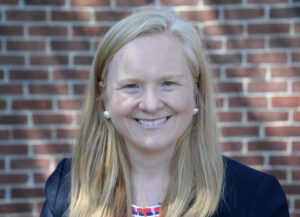 Meals On Wheels Of Rhode Island
Meals On Wheels Of Rhode Island (Meghan Grady, Executive Director)
Providence, Rhode Island
The mission of Meals on Wheels of Rhode Island is to meet the nutritional and social needs of those we serve so that they can maintain safe and independent lifestyles. Since 1969, our programs have worked to reduce food insecurity and social isolation amongst homebound older adults and other at-risk Rhode Island residents. In 2022, our Home-Delivered Meal Program served 3,084 homebound Rhode Island residents, 91% of whom were at least 65 years old. This program provides daily (weekday) delivery of a full and complete meal to the homes of individuals who cannot safely leave home on their own and, as a result, have difficulty accessing adequate nutrition. Each meal served (more than 357,000 in 2022) represents a time when a client also received a wellness check and social visit. As a result of our program, clients report better health, increased feelings of being safe in their own homes, and reduced isolation and loneliness.
We have long known that Block Island’s homebound residents need our help to live healthily, safely, and independently in their own homes. In our 54-year history, until this year, we did not have a partnership or delivery mechanism in place to provide services to Block Island residents. In 2023, we worked with the Town of New Shoreham Director of Human Services to develop a mechanism that now provides the program to Block Island! Utilizing ferry service, meals are delivered to the island weekly, stored in a safe and secure location, and delivered by volunteers on the island.
In addition to providing access to adequate nutrition, our programs offer increased safety assurances through daily well-being checks and social visits that reduce isolation and loneliness among our client populations. Supplemental initiatives, such as the Pet Food Program and Senior Wish Program, further work to reduce isolation and promote improved mental well-being for our clients. We will implement pilot programming to increase our statewide impact, including expanding our service model to provide nutritional and other services to additional populations. Through a partnership with Point 32 Health & Women & Infants Hospital, we are also serving pregnant and post-partum women.
The “Power of Rural” means working to provide necessary programs and services to all Rhode Island residents across all geographic areas. It is the power of our state’s healthcare partners to address the unique needs of our rural residents and to collaborate as stakeholders in bettering the lives of all Rhode Islanders.
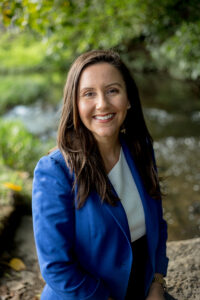 Jacy Warrell, MPA
Jacy Warrell, MPA
Chief Executive Officer
Rural Health Association of Tennessee
Decaturville, Tennessee
Jacy leads the Rural Health Association of Tennessee (RHA), a member organization with more than 700 members statewide. Jacy has transformed the organization by bringing new initiatives that inform policy development while delivering high-quality programs. Under Jacy’s leadership, a renewed focus has been placed on listening to rural health advocates and facilitating opportunities to expand and enhance their efforts locally. The association is leading healthcare apprenticeship programs for entry-level healthcare professionals, enrolling individuals into Medicaid and ACA insurance plans, and hosting events aimed at cross-sector peer-to-peer learning.
When I started in this role in 2020, I quickly learned that Tennessee has many Rural Health Clinics (RHC) that do not have a support network for advocacy, technical assistance, and communication with state agencies. Understanding how important primary care is to rural health, I began connecting with clinic administrators, state agencies and managed care organizations to learn more about these clinics. Through a FORHP Network Planning Grant, RHA staff and an Advisory Committee of RHC representatives developed surveys, conducted site visits, and formally launched an independent RHC Network. The Network has been awarded a Network Implementation grant to expand further and facilitate opportunities for RHCs to integrate into Tennessee’s larger system of care. Through these efforts, RHCs are gaining attention and recognition for their part in providing access to quality care in rural Tennessee.
Through a partnership with Amerigroup, RHA is integrating the training of rural doulas and Certified Lactation Consultants into its Workforce Development Program. In 2023, RHA facilitated the opportunity for an RHA Board Member to testify to the State Senate in an effort to recognize doulas as important advocates for pregnant women.
In 2020, we faced the possibility of a significant funding deficit because of the reliance on annual conference income. In response, we leaned into connecting with our most valuable resource – our members – and found opportunities to bring people together in the community to address access to care, workforce, and substance use disorder. This has led to strengthened relationships and more opportunities, not just for RHA but for the members who benefit directly from the various programs.
The “Power of Rural” is about relationships, being innovative, and a willingness to work hard for the communities we love.
RHA has had a relationship with the Office of Rural Health since the organization’s inception nearly 30 years ago. We strive to be a connector between rural communities and the office and work to keep them informed on issues relevant to communities across the state. Our recent successes and grant programs have allowed us to provide more and better information, leading to better-informed decision-making for rural communities at the state level.
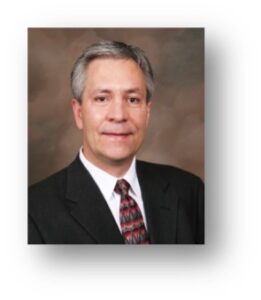 Greg Rosenvall
Greg Rosenvall Rural Hospital Improvement Director
Utah Hospital Association
Gunnison, Utah
Utah’s 2023 Community Star was selected in recognition of his many contributions to improving the quality of and access to health care in rural Utah.
I served as CEO of Gunnison Valley Hospital, a small Critical Access Hospital in Central Utah, for 15 years. Then, I joined the Utah Hospital Association as the Rural Hospital Director in 2011. In this capacity, I work with all rural hospitals in Utah to assist with operational efficiency improvement. The primary focus is on the nine rural independent hospitals because these hospitals are not part of a larger system or corporation; hence, resources are limited.
We organized the nine rural independent hospitals in Utah into an official business entity called the Rural 9 Network. Members pay dues, and I serve as Network Director. I help these hospitals collaborate to reduce isolation and use economies of scale to improve operational efficiencies.
We put the group purchasing organization (GPO) services of the Rural 9 Network hospitals out to bid and were able to realize a significant reduction in GPO service costs for all the hospitals. The negotiation also resulted in book-of-business share back revenue to the Network.
It is a challenge to navigate the independence of the Rural 9 Network hospitals and embark on collaborative projects that are truly meaningful. Once a few projects prove beneficial to the group, it builds momentum!
Rural voices really can be heard at the state and federal legislative levels when there is a unified voice. Many legislators are sympathetic to rural and the unique challenges and want to help.

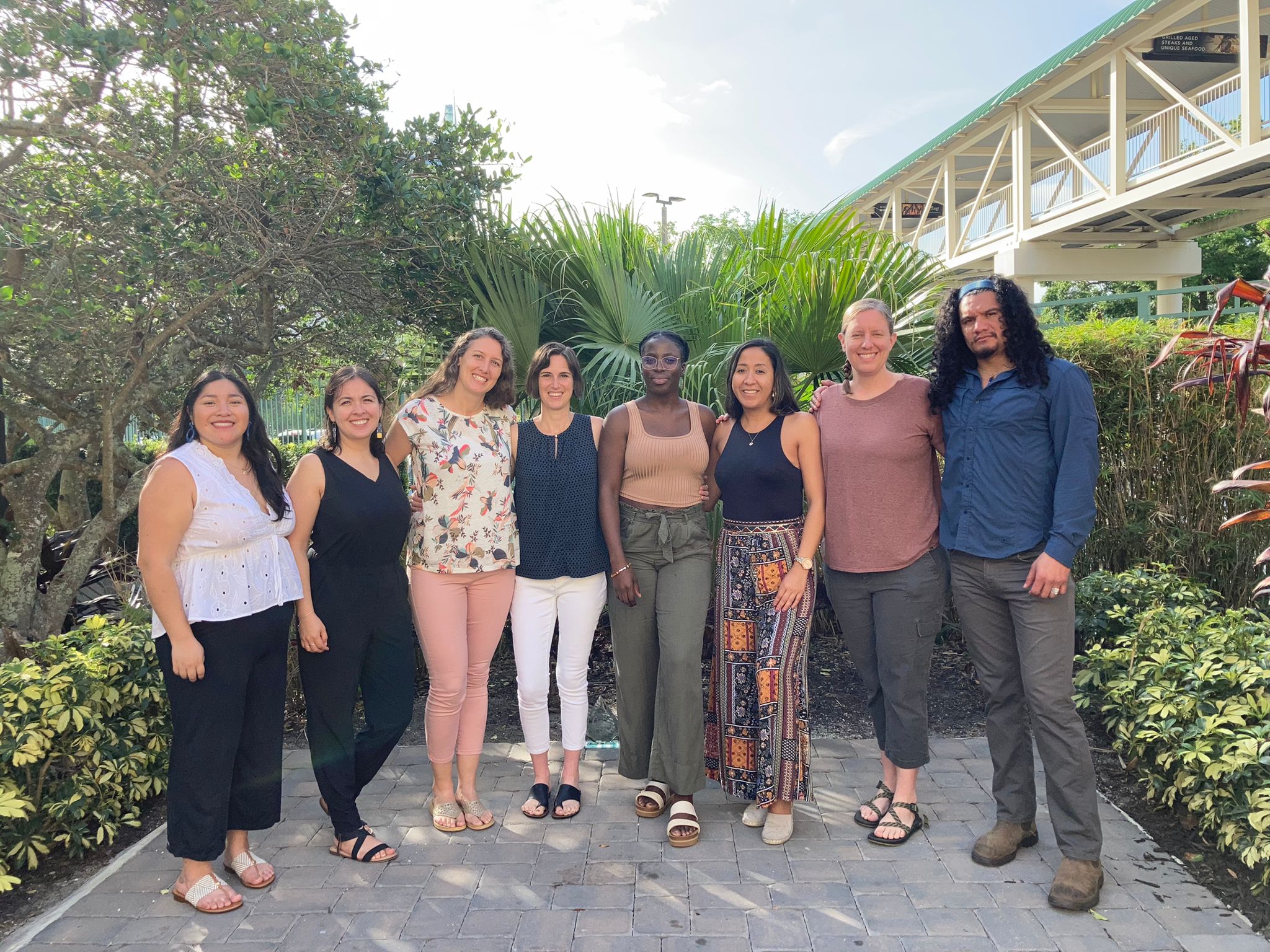 Naomi Wolcott-MacCausland
Naomi Wolcott-MacCausland Migrant Health Programs Lead
University of Vermont Extension
St. Albans, Vermont
Migrant Health Programs began as a health outreach initiative and kitchen garden project in the rural Vermont county where I grew up. Over the years, with the support of many community partners and varied funding sources, I expanded the scope and reach in response to identified community needs across our predominately rural state.
A small but mighty team of Community Health Workers, support staff and student interns work diligently to address the significant systemic and individual barriers to health faced by agricultural and non-agricultural migrant and immigrant workers and their family members. Our team improves the quality of life at an individual, household and population level by serving as liaisons, cultural brokers, health educators, advocates, patient navigators and interpreters between individuals, community-based organizations, and state programs to promote health, reduce disparities, and improve service delivery.
We coordinate home, farm, and community-based health and immunization clinics in collaboration with local health departments, health provider volunteers and family medicine residents. In addition, we have partnerships in place to distribute free food boxes and support households in growing culturally familiar foods in home gardens.
Access to Spanish-speaking clinicians is challenging in a state with limited linguistic diversity, particularly in rural areas. For the past three years, we have used grant funds to buy out two hours a week of a Spanish-speaking clinician’s time to provide tele-mental health services to agricultural workers.
After graduating from college, I lived in Central America for several years, visiting communities with significant outmigration of working-age adults. I witnessed the physical and mental health tolls of family separations and the sacrifices being made in hopes of creating a better and safer life for the next generations. Upon returning to the small dairy farm where I grew up in rural Vermont, I began doing outreach with the Migrant Education Program and coordinated a pilot project focused on labor management and communication on dairy farms with Spanish-speaking employees. After the first year, I coded all my calls from farm workers and owners, discovering that over 50% were requests for assistance navigating the healthcare system. In this data, I saw an unmet community need that I was uniquely positioned to address. Thirteen years and thirteen more counties later, I am more convinced than ever that our boots-on-the-ground approach is the key to achieving health equity within migrant and immigrant communities.
While ruralness adds a layer of complexity to the already significant barriers to care for migrant and immigrant populations, a small state comprised of hundreds of small caring communities creates opportunities for relationship-building and collaborations that would be out of reach in urban areas. Social capital abounds in rural communities, and that capital can be harnessed for positive change.